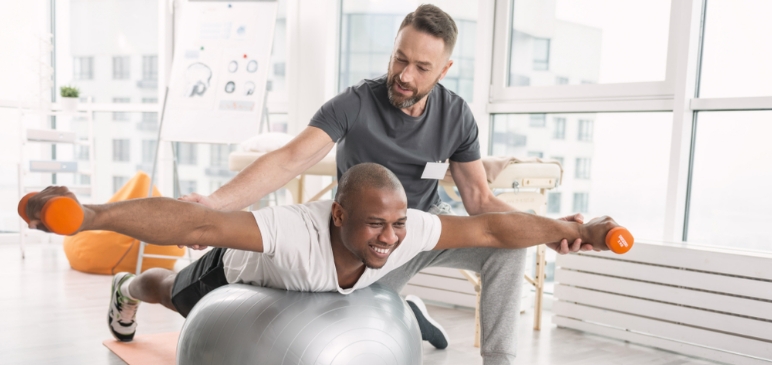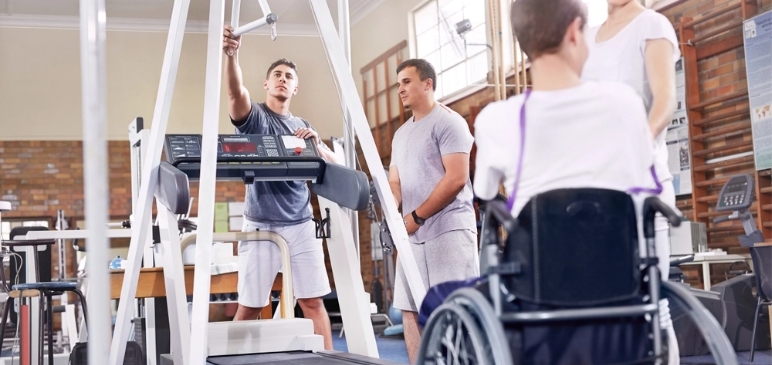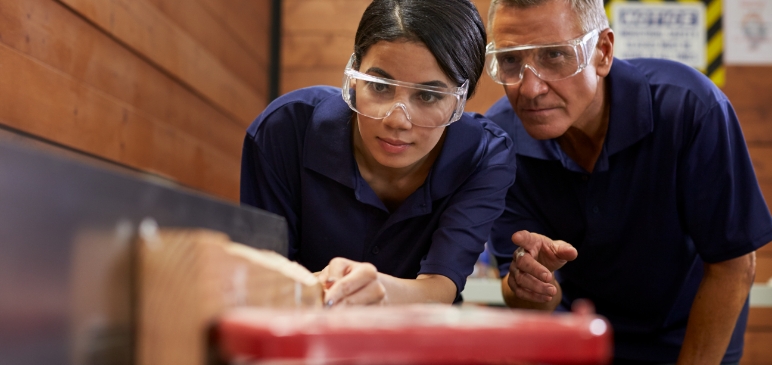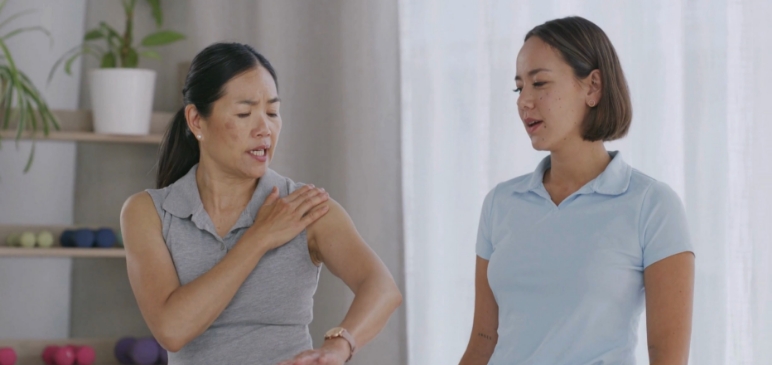
March 1, 2024
The Rehabilitation Services and Vocational Assistance Program (RSVP) is focused on helping Veterans improve their health and adjust to life at home, in the community or at work.
Each Veteran’s transition to life after service is unique. Partners in Canadian Veterans Rehabilitation Services (PCVRS) works with RSVP participants to develop an individualized Rehabilitation Plan. This may include services to address medical, psycho-social, and vocational rehabilitation needs. A Rehabilitation Plan can include treatments focused on:
At PCVRS, our commitment to the well-being of Canadian Veterans goes beyond traditional approaches. We understand that each rehabilitation journey is unique. Therefore, we deliver a comprehensive Interdisciplinary Rehabilitation Program to address each Participant’s needs. Interdisciplinary teams aim to target all these areas to provide a holistic approach1. The interdisciplinary approach accounts for the Participant as a whole, including physical, psychological, and social well-being to help the Participant succeed.
Interdisciplinary rehabilitation care uses a team approach. Rehabilitation professionals from different disciplines work together to provide comprehensive care for a Participant. This approach to rehabilitation addresses the physical, emotional, and social needs of the Participant.
The rehabilitation team may include physiotherapists, occupational therapists, chiropractors, medical doctors, psychotherapists, and psychologists. What makes an interdisciplinary team unique is the continued communication between those involved. This allows professionals to collaborate and share strategies with the goal of helping Participants achieve optimal health and improving their quality of life.2
Regular communication and coordination among team members is pivotal. They share insights, assess progress, and adjust interventions based on individual needs. This collaborative approach ensures a well-rounded and integrated approach to rehabilitation. Their combined knowledge and skills maximize the effectiveness of interventions, promoting optimal recovery and enhancing the overall quality of life for the patient.
One of the key principles of an Interdisciplinary Rehabilitation approach is the continuum of care. Continuum of care emphasizes collaboration among professionals throughout the Participant’s rehabilitation journey, leading to improved outcomes and enhanced overall well-being. Research has shown that continuity requires cooperation at multiple levels, involving long-term and person-centered relationships.3
Rehabilitation is not a one-size-fits-all process, and progress may take time. RSVP spans various stages, providing seamless transitions and ongoing support to Veterans as they navigate their rehabilitation journey. Interdisciplinary collaboration ensures that all aspects of rehabilitation are seamlessly integrated for a comprehensive approach. As Veterans progress, we focus on community reintegration, offering support to help them regain independence in their daily lives.

Now that we have introduced the concepts of interdisciplinary rehabilitation and continuum of care, and how they play a pivotal role in PCVRS’ delivery of rehabilitation services to RSVP participants, let’s review a case study:
Meet Christopher, a decorated Canadian Veteran who is a new Participant in the RSVP. Christopher was previously diagnosed with PTSD. He injured his leg while serving in the military, which worsened his PTSD symptoms.
Christopher was introduced to his interdisciplinary team in a preliminary meeting. This allowed each member of the team to conduct their relevant assessments. The assessment team recommended that an "Interdisciplinary Care" plan would be the best next step to address his on-going challenges.
Interdisciplinary care (IDC) is helpful when there is persistent pain, or a person has multiple needs. It’s especially helpful for people like Christopher, whose injury and pain have impacted more than just their body. Christopher’s Assessing IDC team includes a physician, occupational therapist, and psychologist.
Christopher already has his own family physician. The IDC physician does not replace his existing primary care physician. They play the vital role of consolidating and communicating care with any preexisting providers the Participant may have. During the initial assessment, the IDC physician noted that Christopher was diagnosed with PTSD. They were able to advise the rest of the IDC team by reviewing Christopher’s past medical history and establishing his diagnosis and prognosis. Guided by the physician’s medical expertise, Christopher’s assessing team can develop their rehabilitation plans to meet his goals.
Christopher and his team work together to create common goals. The team integrates and combines their skills and approach to attain the best possible outcomes. For example, Christopher’s physiotherapist will keep in mind his psycho-social rehab goals and concerns while completing his physio assessments.
Interdisciplinary care brings together the strengths of different clinicians to help Participants achieve their rehabilitation goals. This approach helps Participants like Christopher reach their rehabilitation goals and improve their quality of life. At PCVRS, we believe in empowering Canadian Veterans to rebuild their lives through our Participant-centered Interdisciplinary Rehabilitation Program. By embracing the principles of interdisciplinary care and providing a continuum of support, we aim to make a lasting impact on the well-being of Canadian Veterans. Together, with a dedicated team of rehabilitation professionals and a personalized approach to rehabilitation, we are committed to enhancing the lives of those who have served our nation.
1Singh R, Küçükdeveci AA, Grabljevec K, Gray A. The role of Interdisciplinary Teams in Physical and Rehabilitation Medicine. J Rehabil Med. 2018 Aug 22;50(8):673-678. doi: 10.2340/16501977-2364. PMID: 29944171.
2Singh R, Küçükdeveci AA, Grabljevec K, Gray A. The role of Interdisciplinary Teams in Physical and Rehabilitation Medicine. J Rehabil Med. 2018 Aug 22;50(8):673-678. doi: 10.2340/16501977-2364. PMID: 29944171.
3Ljungholm, L., Edin-Liljegren, A., Ekstedt, M., & Klinga, C. (2022). What is needed for continuity of care and how can we achieve it? – Perceptions among multiprofessionals on the chronic care trajectory. BMC Health Services Research. https://doi.org/10.1186/s12913-022-08023-0

April 1, 2025
Vocational Rehabilitation helps to identify and achieve an appropriate occupational goal for a person, given their state of health and the extent of their education, skills and experience.

November 18, 2024
At Partners in Canadian Veterans Rehabilitation Services (PCVRS), we know that every Participant is unique. No one knows the health problems that are impacting your re-establishment to life after service better than you.

September 30, 2024
Your rehabilitation journey with Partners in Canadian Veterans Rehabilitation Services (PCVRS) begins by helping you identify your rehabilitation needs and learning about how our Rehabilitation Service Specialists (RSSs) and Rehabilitation Service Professionals (RSPs) can support your success in Veteran Affairs Canada’s (VAC) Rehabilitation Services and Vocational Assistance Program.
General Program Information
About the Rehabilitation ProgramRehabilitation teamRehabilitation journeyGBA PlusFAQFor Businesses
Hiring a VeteranPartners in Canadian Veterans Rehabilitation Services
Rehabilitation Services and Vocational Assistance Program
